On the 15th of February 2022 ILGAILGA A driving force for political, legal and social change for LGBTI https://www.ilga-europe.org – The International Lesbian, Gay, Bisexual, Trans and Intersex Association (ILGBTIA, and in Europe ILGA) released their 2022 Annual Review, looking at over fifty countries within Europe.
The report in relation to the UK is below.
Ashamed to be British?
ANNUAL REVIEW OF THE HUMAN RIGHTS SITUATION OF LESBIAN, GAY, BISEXUAL, TRANS, AND INTERSEX PEOPLE IN UNITED KINGDOM COVERING THE PERIOD OF JANUARY TO DECEMBER 2021
UNITED KINGDOM
ASYLUM
The government held a consultation on its New Plan for Immigration, which was harshly criticised by NGOs. First, asylum applicants might be placed in reception centres abroad, possibly even in the country they are fleeing from – this would expose LGBTQI asylum seekers to unprecedented risk of violence. Second, appeal procedures would also be fast tracked. Third, evidence
of someone’s SOGIESC would have to be provided at the beginning of the procedure, which is virtually impossible for LGBTQI people as they are fleeing from countries where having such evidence could be life threatening. In July, the government responded to these concerns by saying it would train all relevant staff.
CSOs expressed concern about the flawed Aspen cards, which have left thousands of asylum seekers unable to access their allowance.
Anti-trans rhetoric continued to cause serious damage in the UK again this year. Civil society reports that mainstream newspapers ran one or more anti-trans articles every day. In November, trans people and allies held a protest outside BBC’s office for its transphobic articles. A number of LGBTQLGBTQ LGBTQIA+ is an inclusive term that includes people of all genders and sexualities, such as lesbian, gay, bisexual, transgender, questioning, queer, intersex, asexual, pansexual, and allies. While each letter in LGBTQIA+ stands for a specific group of people, the term encompasses the entire spectrum of gender fluidity and sexual identities. https://abbreviations.yourdictionary.com/what-does-lgbtqia-stand-for-full-acronym-explained.html https://en.wikipedia.org/wiki/LGBT employees quit the BBC due to concerns over its transphobic reporting. The National Student Union continued to stand with trans people in the ever-escalating wave of anti-trans hate speech, including in academia.
With anti-trans and anti-LGBTQ+ hate rising in the UK and across the world, 39 LGBTQ+ organisations released an open letter on 18 May, calling on the UK’s Equality and Human Rights Commission’s (EHRC) to step up for LGBTQ+ communities. Civil society is alarmed that the Charity Commission approved the registration of the ‘LGB Alliance’ as a public charity, despite several NGOs and politicians having called it an anti-trans “hate group”. Mermaids, with support from other CSOs, filed an appeal.
A Scottish parliamentary candidate spread misinformation that Stonewall and LGBT Youth Scotland groups would want to lower the age of consent to 10.
Hate crimes remained a serious issue. The UK Home Office annual hate crime statistics report highlighted that homophobic hate crimes increased by 7% and transphobic hate crimes by 3%, in England and Wales. Media reported that the increase of hate crimes based on sexual orientation was higher, 12%.
In March, the Scottish parliament successfully passed a new hate crime law which covers LGBTI people as protected groups and strengthens protections. It will enter into force in 2022. The Crown Office (COPFS) published its annual Hate Crime in Scotland report in June, finding that the number of homophobic hate crimes continued to increase in Scotland for the sixth year in a row.
Galop’s 2021 Hate Crime Report found that three in five LGBT+ people in the UK experiencing hate crime wanted and needed help, but only one in five were able to access support.
Civil society continued advocating for comprehensive hate crime legislation in England and Wales.
Several hate crimes were committed against LGBTI people again this year. For instance, a trans woman suffered serious stabbing injuries in Birmingham in September.
The Police Service of Northern Ireland highlighted in its annual report that the number of homophobic incidents increased by 16% in 2021/2022, reaching a record high since 2004/2005. Transphobic hate crimes have also been on the rise, but the law only covers sexual orienation, so they must instead be pursued as homophobic incidents.
The Northern Ireland Department of Justice is currently working on pre-consultation on a new Hate Crime Bill, which will include “age, sex/gender and variations in sex characteristics”, and trans people under “sex/gender”.
The process of banning conversion therapy was further stalled this year. In March, members of LGBTI groups in several parties urged the UK government to speed up the process. Several people shared their experiences of being subject to therapies. In April, Mermaids published a study on Gender Identity “Conversion Therapy” documenting accounts of “verbal abuse, isolation, beatings, forced feeding or food deprivation, corrective rape and forced nudity”.
In May, the UK government affirmed its support for the ban again, but not without holding a consultation on the issue first. The commitment was also included in the Queen’s speech at the State Opening of Parliament in May. Civil society continued lobbying for a ban.
Several religious groups warned that the ban would criminalise church leaders and limit freedom of religion and freedom of thought. Other religious groups expressed support for the ban.
On 1 October, senior lawyers, academics, MPs and civil society groups signed the Cooper Report on how to effectively legislate for a ban, including by broadly defining the therapies as “any practice that seeks to suppress, ‘cure’ or change a person’s sexual orientation or gender identity”.
In the May Scottish parliamentary election, all parties elected promised to ban conversion therapy. In September, the Scottish Parliament equality committee began an inquiry, and took evidence from survivors, LGBTI organisations, human rights organisations, and religious groups. On 18 November, the Scottish Government announced an expert advisory group to develop proposals for a ban.
On 21 April, Northern Ireland Assembly passed a non- directive motion on a ban on conversion therapy practises. Work is currently being undertaken by the Department for Communities in research and draft legislation to bring this about.
The census in England, Wales and Northern Ireland took place on 21 March. Several LGBTI organisations encouraged the community to answer the voluntary questions on sexual orientation or gender identity to have a better idea of the size of the community. Gendered Intelligence advised trans people to answer by self- identifying. The census guidance initially said that the respondents could enter the gender marker from their passport, which can be changed in the UK without a legal process. Anti-trans groups lobbied to have this section changed. In March, the High Court ordered to remove ‘passport’ from the list. Accordingly, respondents were asked to indicate the ‘sex’ on their birth certificate or gender recognition certificate.
The anti-trans group Fair Play for Women began court action in November to challenge the 2022 Census in Scotland, which would allow trans people to self-identify.
The government decided to cut funding for anti-LGBT+ bullying programmes despite an alarming 46% of LGBT+ students feeling unsafe at school.
In June, Just Like Us released the ‘Growing up LGBT+’ report finding that LGBT+ students are twice as likely to have been bullied that their cisgender heterosexual peers and that 91% have heard negative language about being LGBT+ just in the past year. Over 1,000 LGBT+ students aged 11-18 participated in the survey. The study also found that LGBT+ students in Northern Ireland fared the worst. 82% of them have contemplated suicide compared to a fourth of that rate among non-LGBT+ peers. They were also more likely to have suicidal thoughts than LGBT+ youth in England (67%), Scotland (79%), or Wales (73%).
The Scottish government made available new resources on how schools can support trans students.
Relationship and sex education reform is ongoing in Northern Ireland, seeking to have better inclusion of LGBTIQA+ issues.
In May, Minister for Women and Equalities Liz Truss encouraged the government to withdraw from Stonewall’s employment scheme, which promotes a safe and inclusive workplace for LGBT+ staff. A number of government entities, such as the Ministry of Justice, the Equality and Human Rights Commission, and media outlets have pulled out.
In March, Jayne Ozanne, a survivor of conversion therapy, James Morton, and Ellen Murray all quit the government’s LGBT+ Advisory Panel due to their concerns of the government’s growing hostility towards LGBT+ and particularly trans people. The Advisory Panel was disbanded in April. Minister for Women and Equalities Liz Truss said a new panel would be set up soon.
In March, the Court of Session ruled that the Scottish Government acted lawfully in including trans women in an equal opportunities measure to improve women’s representation on public boards. The UK government postponed the deadline for its consultation on gender neutral bathrooms, sparking criticism from trans groups.
In February, the UK parliament tabled a bill on parental leave for Ministers, but the final wording uses the term ‘mother’ instead of the original ‘pregnant people’, erasing all pregnant people who do not identify as women.
As co-chairs of the Equal Rights Coalition, the UK and Argentina launched the ERC’s first strategic plan for the period of 2021-2026.
The new ‘Police, crime, sentencing and courts’ bill passed almost all legislative phases by the end of the year, and has been criticised nationally and internationally. The law would give powers to the police to disperse events that ‘cause serious annoyance’ for the neighbourhood. Omagh held its first Pride parade this year, highlighting the need for rural LGBTQI visibility.
In January, the Care Quality Commission (CQC) published a report on the provision of trans healthcare by the NHS Tavistock, concluding that the NHS is violating its obligations by imposing excruciatingly long waiting lines on trans people. While the law sets out that specialist care should be provided within 18 weeks, most trans people wait for over a year to get their first appointment and 26% wait for two years. CQC warned that those waiting are at risk of self-harm and mental health problems. Gendered Intelligence highlighted that the responsibility to reform the system falls on the NHS, and not on care providers like Tavistock. The UK government had previously planned waiting lists to be significantly cut by 2022.
A study conducted with 13 families with trans and gender- non-conforming children in England affirmed that families struggle with lengthy waiting lists, geographical inaccessibility, and a lack of knowledge from clinicians who also fail to value family expertise.
Access to gender affirming healthcare for trans adults in Northern Ireland continued to be almost completely non-existent. A consultant was hired this year to help with the backlog, but the waiting times average three to five years.
In August the Scottish Government promised to overhaul trans healthcare in Scotland in 2022-2024, bringing waiting times down to 18 weeks, and improving support and delivery, and on 20 December published a plan for progressing this.
On 26 March, the High Court ruled in the AB v Tavistock and Portman NHS Foundation Trust case that if a young person, their parents, and their doctors all consent to them accessing puberty blockers and think it is in the best interest of the child, the minor does not need to get the approval of a court. The judgement practically reversed the 2020 Bell ruling.
This judgement restates the rights of the child, but children without supportive parents still need to go to court. In mid-April, the NHSE published its new puberty blockers guidelines to fall in line with the March ruling. The Court of Appeal quashed the Bell v Tavistock ruling on 17 September, confirming that it is ultimately “for clinicians to exercise their judgement” around the referral of patients for puberty delaying treatment, seeing as they are already “subject to professional regulation and oversight”.
The three-month blood donation deferral period for men who have sex with men was abolished on 1 March. From June, those wanting to donate in England, Scotland, and Wales are asked about risky behaviours instead. In Northern Ireland, the regulation came into force in September. The regulations still include anti-Blackanguage by imposing a three-month deferral period on “anyone who has slept with someone from parts of the world where HIV and AIDS are ‘very common’.”
In July, the All-Party Parliamentary GroupAPPG APPGs allow campaign groups, charities, and other non-governmental organisations active in the field to become involved in discussions and influence politicians. Often a relevant charity or other organisation will provide a secretariat for the APPG, helping to arrange meetings and keeping track of its members https://en.wikipedia.org/wiki/All-party_parliamentary_group (APPGAPPG APPGs allow campaign groups, charities, and other non-governmental organisations active in the field to become involved in discussions and influence politicians. Often a relevant charity or other organisation will provide a secretariat for the APPG, helping to arrange meetings and keeping track of its members https://en.wikipedia.org/wiki/All-party_parliamentary_group ) on HIV and AIDS launched a report on how to increase and normalise HIV testing across the UK. Metro published its study on the access of sexual health services of those over 45, finding fear of stigma, a lack of awareness of health risks, and lack of access to services.
Akt released ‘the lgbtq+ youth homelessness report’ and thematic briefings, highlighting that the most common reason among for homelessness was family rejection: 61% felt threatened or scared by their family before becoming homeless. Half of the respondents feared that expressing their LGBTQ+ identity to family members would lead to them being evicted; and 17% said they felt they had to engage in casual sex to find somewhere to stay while they were homeless. CSOs called on London’s mayoral candidates to put a strategy in place to address homelessness among LGBTIQA+ people. Sadiq Khan was reelected as mayor and promised to invest into emergency housing for those most vulnerable, including LGBTIQA+ people.
Activists were targeted by hate and smear campaigns. The BBC for instance, ran an entire smear podcast series on Stonewall. A number of staff quit the organisation due to such attacks and burnout. The Kaleidoscope ‘LGBTI+ People in the Commonwealth in the Covid Era: An Update report found that 61% of the participating organisations had no financial reserves and more than half have lost earnings during COVID-19.
In May, the UK government rejected the plea of over 136,000 people who signed a petition calling for legal gender recognition (LGR) for people whose identity does not fit in the gender binary, saying it would have too “ complex practical consequences” and will not be on the agenda in the coming years.
The gender recognition certificate fee was reduced from £140 to £5. While a positive step, it is one of the few positives in the UK government’s LGR law reform process for England and Wales. The Scottish government promised improvements in terms of non-binary people’s rights and hosted a Non- Binary Working Group, made up of non-binary people and allies. The Group’s recommendations will help the government publish its action plan by spring 2023.
In September, the Scottish government published the analysis of consultation responses on the draft Gender Recognition Reform Bill, concluding that most contributors envisioned a statutory declaration-based system. Minister Nicola Sturgeon confirmed that LGR reform will be on the parliament’s agenda in 2022.





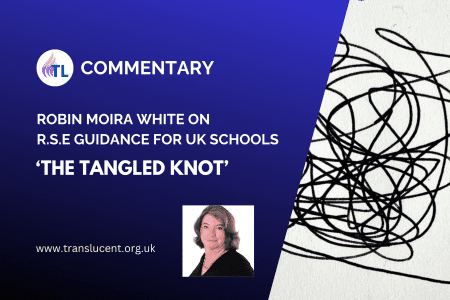

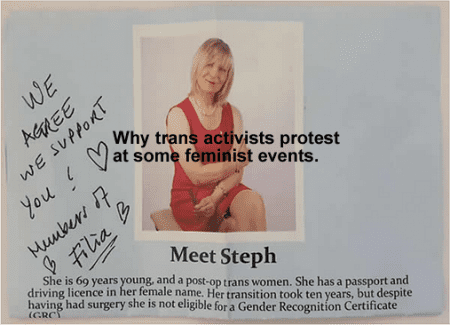
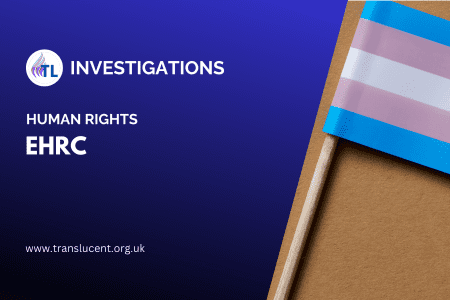
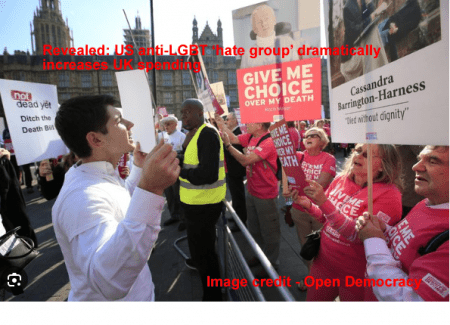
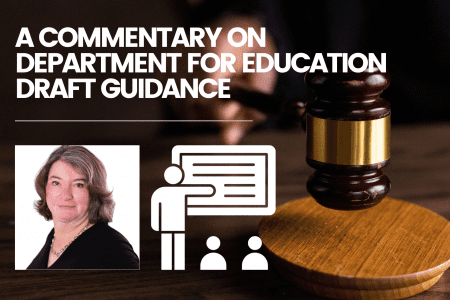
 To provide the best experiences, we use technologies like cookies to store and/or access device information. Consenting to these technologies will allow us to process data such as browsing behaviour or unique IDs on this site. Not consenting or withdrawing consent, may adversely affect certain features and functions.
To provide the best experiences, we use technologies like cookies to store and/or access device information. Consenting to these technologies will allow us to process data such as browsing behaviour or unique IDs on this site. Not consenting or withdrawing consent, may adversely affect certain features and functions.